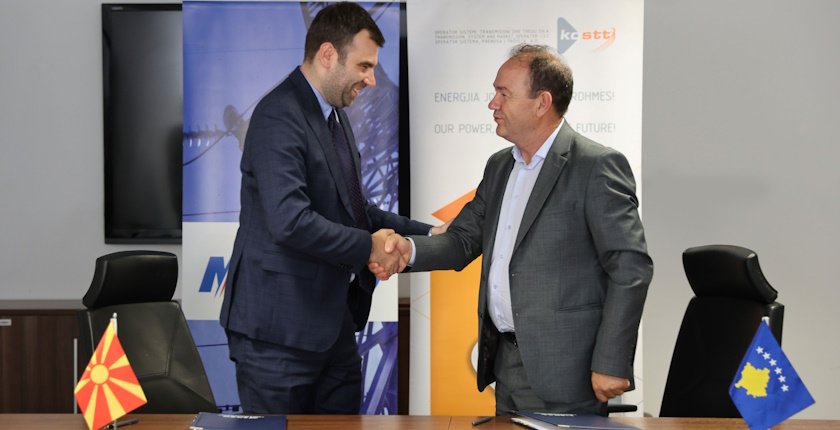The transmission system operators (TSOs) of North Macedonia and Kosovo are initiating a 400 kV power interconnection project between Tetovo and Prizren. This project aims to improve grid infrastructure and increase energy reliability in both countries.
Burim Latifi, Director-General of North Macedonia’s MEPSO, and Shaban Neziri, Acting CEO of Kosovo’s KOSTT, signed a memorandum of cooperation in Skopje to formalize their collaboration on this strategic initiative. The 400 kV interconnection line is expected to significantly boost the transmission capacities in the region, which currently relies on a single 220 kV connection.
The European Network of Transmission System Operators for Electricity (ENTSO-E) has recognized this project as part of its planning platform, highlighting its alignment with the EU’s energy transition objectives for 2050. The project not only focuses on the interconnection but also includes additional enhancements to the transmission network, such as a new 400/110 kV transformer station in Tetovo and new lines extending to Ohrid and Skopje.
Latifi emphasized that the new transmission line will improve system capacity and reliability, facilitating greater electricity exchange. This is particularly important for attracting investments in renewable energy sources, which are a priority for both nations.
Moreover, this initiative is expected to strengthen the East-West energy corridor, enhancing regional energy connectivity. Neziri noted that the project confirms their commitment to developing a modern energy infrastructure that supports the energy goals of the Western Balkans.
The project is currently in the planning and technical preparation phase, with construction timelines contingent upon securing financial backing and coordinating with relevant stakeholders. The integration of stronger interconnections is necessary for synchronizing electricity markets in the Western Balkans with the European Union’s market framework. This is crucial for market coupling, a process that aims to connect power markets in the region and exempt them from the EU’s upcoming Carbon Border Adjustment Mechanism, which is set to impose a CO2 tax starting January 1.
Overall, the 400 kV interconnection project between North Macedonia and Kosovo represents a vital step towards modernizing energy infrastructure, bolstering regional energy security, and promoting renewable energy development.



